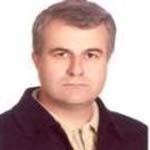Effect of Training Interventions in a Virtual Environment on Dynamic and Functional Balance in the Elderly
Background and Aims:
Balance disorder has been recognized as a leading cause of falls in the elderly. One way to strengthen the balance of the elderly is to use new technologies such as virtual reality. Purpose of this study was to investigate the effect of virtual reality exercises on the dynamic and functional balance of the elderly.
Methods :
The present study was a quasi-experimental research with pre-test and post-test design. Subjects included 24 male aged 60-75 years that were selected by a convenience sampling method from Shabestar city and divided randomly into two virtual and control groups. Participants in the experimental group practiced for 9 weeks, but the control group continued their usual treatment programs. XBox device was used for virtual reality interventions. Also, in order to evaluate the functional and dynamic balance, Berg Balance Scale, and Up and go timed Test were used, respectively. MANCOVA and ANCOVA Tests were used at P<0.05 level to analyze the data.
Results :
MACNOVA test results showed a significant difference (P=0.001) between two groups at least in one balance variable (dynamic and functional). Also, based on the results of ANCOVA test, due to better balance scores in the experimental group, virtual reality practice using Xbox improved their dynamic and functional balance compared to the control group.
Conclusion:
This study provides evidence that dynamic and functional balance is modifiable in elderly people and that they respond to short-time VR training. It is suggested to use virtual reality as well as balance exercises as a suitable method of improving dynamic and functional balance abilities in the elderly.
-
The Effect of Sensory-Motor Integration Exercising Program Based on the Game Sense Approach on Spatial Visualization and Fine Motor Skills of Children with Learning Disorder
Hanieh Ghasemian Moghadam, *
Empowering Exceptional Children, -
Effects of Rhythmic Movement Training on the Elbow Spasticity and Proprioception of Female Children With Hemiplegic Cerebral Palsy
Sahar Vafaeian *, Hassan Mohamadzadeh, Jalal Dehghanizadeh
Scientific Journal of Rehabilitation Medicine,



